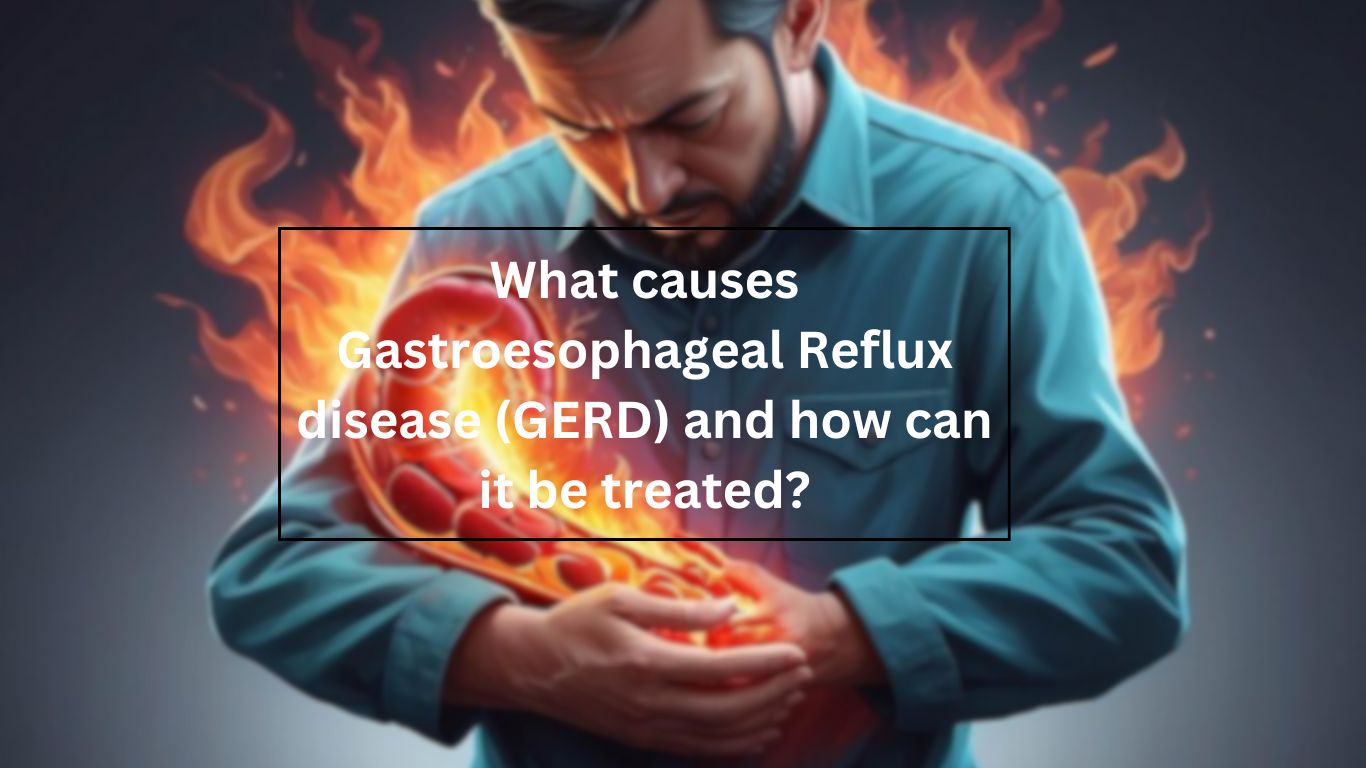
Jul 29, 2024
Gastroesophageal reflux disease (GERD) is a chronic condition. Stomach acid often flows back into the esophagus, the tube from your mouth to your stomach. This acid reflux can irritate the lining of your esophagus. GERD is a common digestive disorder that affects people of all ages. It is vital to know its causes and treatments. This helps manage symptoms and improve quality of life. If you have GERD symptoms, please consult a healthcare professional. In Jaipur, the best place for treatment is Saket Hospital. It has the best gastrologist in Jaipur.
GERD occurs when the lower esophageal sphincter (LES) doesn’t work. It’s a ring of muscle at the end of your esophagus. Normally, the LES relaxes to let food and liquid into your stomach. Then, it closes to stop food and acid from flowing back into the esophagus. Yet, when the LES is weak or relaxes inappropriately, it can lead to acid reflux.
1. Hiatal Hernia
A hiatal hernia occurs when the stomach’s upper part pushes through a diaphragm opening into the chest. This displacement can cause the LES to malfunction, allowing acid to escape into the esophagus.
2. Obesity
Excess body weight, especially in the belly, can pressure the stomach. This may cause the LES to relax inappropriately. This pressure can lead to acid reflux and GERD.
3. Pregnancy
Hormonal changes during pregnancy can relax the LES. A growing uterus can increase stomach pressure, causing acid reflux.
4. Smoking
Smoking can weaken the LES and increase acid production in the stomach. It also reduces saliva production, which is necessary to neutralize stomach acid.
5. Dietary Choices
Certain foods and drinks can trigger acid reflux. They relax the LES or increase stomach acid. Common culprits include spicy foods, chocolate, caffeine, alcohol, and fatty foods.
6. Medications
Some meds, like muscle relaxants, blood pressure drugs, and antihistamines, can weaken the LES. This may cause GERD symptoms.
GERD symptoms can vary from mild to severe. Common symptoms include:
Heartburn: A burning feeling in the chest, usually after eating. It may be worse at night.
Regurgitation: Sour or bitter-tasting acid backing up into your throat or mouth.
Difficulty swallowing: Feeling like you have a lump in your throat.
Chest pain: Discomfort or pain that may mimic the symptoms of a heart attack.
Chronic cough: Persistent coughing, especially at night.
Laryngitis: Hoarseness or sore throat.
If left untreated, GERD can lead to more severe health problems:
1. Esophagitis
Frequent acid exposure can inflame the esophagus. This can cause pain and make swallowing hard.
2. Esophageal Stricture
Chronic inflammation can cause scar tissue. It can narrow the esophagus and make swallowing hard.
3. Barrett’s Esophagus
A condition where acid exposure alters the esophagus’ lining. It raises the risk of esophageal cancer.
4. Respiratory Issues
Chronic acid reflux can cause respiratory issues like asthma and bronchitis. It may also lead to aspiration pneumonia.
Diagnosing GERD typically involves a combination of symptom review and diagnostic tests:
1. Upper Endoscopy
A procedure that uses a thin, flexible tube with a camera. It is inserted into the esophagus to check for inflammation or other issues.
2. Esophageal pH Monitoring
A test that measures the amount of acid in the esophagus over a 24-hour period.
3. Manometry
This test measures the rhythm of your esophagus’ muscle contractions when you swallow. It also tests how well your esophagus muscles work.
4. Barium Swallow
An X-ray exam that checks for abnormalities in the esophagus and stomach.
Treating GERD involves lifestyle modifications, medications, and in some cases, surgery.
Lifestyle Modifications
Dietary Changes
Avoid trigger foods such as spicy foods, chocolate, caffeine, alcohol, and fatty foods.
Eat smaller, more frequent meals instead of large meals.
Avoid eating late at night.
Weight Management
Maintaining a healthy weight can reduce pressure on the stomach and LES.
Elevating the Head of the Bed
Raising the head of your bed by 6 to 8 inches can prevent acid from flowing back into the esophagus during sleep.
Quit Smoking
Stopping smoking can improve LES function and reduce acid production.
Avoid Tight Clothing
Tight clothing, especially around the waist, can put pressure on the stomach and LES.
Medications
Antacids
Over-the-counter medications that neutralize stomach acid and provide quick relief.
H2 Receptor Blockers
Medications that reduce acid production. Examples include ranitidine and famotidine.
Proton Pump Inhibitors (PPIs)
More effective at reducing acid production than H2 blockers. Common PPIs include omeprazole and esomeprazole.
Prokinetics
Medications that help strengthen the LES and make the stomach empty faster.
Surgical Options
For those who do not respond to lifestyle changes and medications, surgery might be an option:
Fundoplication
The most common surgical procedure for GERD. The surgeon wraps the top of the stomach around the LES to strengthen it and prevent acid reflux.
LINX Device
A ring of tiny magnetic beads is wrapped around the junction of the stomach and esophagus. The beads’ magnetic attraction keeps the LES closed to refluxing acid. But, it lets food pass through.
GERD is a manageable condition with the right approach and treatment. By understanding its causes and symptoms, you can take the necessary steps to control it. Lifestyle modifications, medications, and sometimes surgery can significantly improve your quality of life. If you have GERD symptoms, seek medical advice. At Saket Hospital in Jaipur, you can see the best gastroenterologist in Jaipur. They will give you a full diagnosis and treatment. Remember, early intervention can prevent complications and improve your overall health.
Stay informed and proactive. You can then manage GERD and live better.